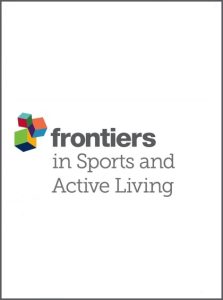Publications

MyotonPRO Is a Valid Device for Assessing Wrist Biomechanical Stiffness in Healthy Young Adults
Authors: Anh Phong Nguyen 1, Christine Detrembleur 1, Paul Fisette 2, Clara Selves 1, 3, Philippe Mahaudens 1, 3
Affiliations:
- Neuromusculoskeletal Laboratory, Institut de Recherche Experimentale et Clinique, Catholic University of Louvain, Louvain-la-Neuve, Belgium
- Institute of Mechanics, Materials and Civil Engineering, Mechatronic, Electrical Energy and Dynamic Systems, Catholic University of Louvain, Louvain-la-Neuve, Belgium
- Service de Medecine Physique et Readaptation, Cliniques Universitaires Saint-Luc, Woluwe-Saint-Lambert, Belgium
Journal: Frontiers in Sports and Active Living - February 2022, Volume 4, Article no. 797975 (DOI: 10.3389/fspor.2022.797975)
-
Field & Applications:
- Validity
- Reliability
- Musculoskeletal health
- Based on our results, the MyotonPRO revealed itself to be a suitable device for performing in vivo measurements of myofascial tissue’s viscoelastic properties.
Background: The MyotonPRO is a portable device for measuring biomechanical and viscoelastic properties in superficial soft tissues. The aims of this study are firstly to validate the MyotonPRO compared to a reliable gold-standard frame and secondly to observe the influence of MyotonPRO measurement on the total wrist viscoelasticity.
Methods: Three silicone polymers with different elastic properties were assessed with the MyotonPRO and with a reference rheometer (Universal Tribometer Mod). Then, a free oscillations method was used to measure the passive elastic and viscous stiffness of the wrist and compared to MyotonPRO forearm measurements.
Results: A one-way ANOVA demonstrated the validity of the MyotonPRO’s stiffness (p = 0.001), decrement (p < 0.001), and relaxation (p = 0.008) parameters for measuring the elastic stiffness (k) of the three polymers. The MyotonPRO parameters demonstrated excellent reliability on the forearm. Proximal and distal anterior myofascial measurements of the MyotonPRO were moderately correlated to the elastic stiffness (p = 0.0027–0.0275, absolute r = from 0.270 to 0.375) of the wrist while the postero-distal myofascial tissues of the forearm demonstrated a moderate correlation with the viscous stiffness of the wrist (p = 0.0096–0.0433, absolute r = from 0.257 to 0.326).
Discussion: The MyotonPRO is a valid device for measuring elastic stiffness as well as a portable, affordable, and easy-to-use tool for quantifying the biomechanical properties and viscoelasticity of myofascial tissue in healthy subjects.
Keywords: myotonometry, viscoelasticity, myofascial stiffness, elastic, viscous, musculoskeletal
The stiffness and decrement parameters measured with the MyotonPro technology are valid and demonstrated accuracy in identifying materials with different elastic stiffness. Furthermore, the MyotonPro frequency, stiffness relaxation time and creep of the forearm showed small but significant correlations with passive elastic and viscous stiffness of the wrist. More particularly, the proximal and distal anterior myofascial tissues of the forearm showed a small relationship with the elastic stiffness of the wrist while the distal tissue of the posterior side of the forearm demonstrated a relationship with the viscous stiffness of the wrist.


